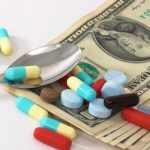
Prescription opioid deaths surpass gun-related deaths… Big Pharma literally killing more people than GUNS
Wednesday, March 01, 2017 by Daniel Barker
http://www.fda.news/2017-03-01-prescription-opioid-deaths-surpass-gun-related-deaths-big-pharma-literally-killing-more-people-than-guns.html

The opioid epidemic in America is killing more people than guns and the blame rests squarely on Big Pharma. Until 2007, the number of deaths by firearm was five times greater than those caused by overdoses, but in 2015 overdose deaths surpassed gun deaths for the first time – and it looks like the trend will continue.
Drug companies have orchestrated and encouraged the over-prescription of powerful opioid painkillers for the past couple of decades – a policy which created problems now threatening to spiral out of control as the overdose death toll continues to rise dramatically each year.
America’s current opioid crisis can be traced directly to the introduction of extremely potent – and highly addictive – opioid painkillers such as OxyContin, which was first marketed in 1995 and soon became a problem, both with patients who became addicted and with recreational drug users, who could snort or inject the drug much in the same fashion as heroin, and with similar results.
The federal government has finally ordered stricter limits on the prescription of opioid painkillers, but that has driven many opioid-dependent people to the streets in search of substitutes like heroin or increasingly, synthetic opioids such as fentanyl – an often illicitly-manufactured drug many times stronger than heroin and far more dangerous in terms of overdose potential.
From The Week:
“Now that federal regulations have finally caught up to the pharmaceutical drug problem in this country and doctors have wised up to the sinister realities of the drug nicknamed ‘Hillbilly Heroin,’ the hard and fast days of OxyContin are over.”
“Many are now arguing that the epidemic hasn’t gone away so much as it has evolved: Heroin use is again on the upswing. Like a shrewd virus that mutates once it confronts a vaccine, Americans’ addiction to opioids has survived the government crackdown on OxyContin and fled to the seedy asylum of heroin.”
It’s true that heroin use is on the rise – fatal overdoses from heroin have quadrupled over the past five years. But increasingly, overdose deaths are being attributed to synthetic opioids, particularly fentanyl, which is often mixed into street heroin.
Fentanyl is 50 times stronger than heroin and has been the cause of waves of deaths in many communities throughout the country – in one week during the spring of 2016, forty six people died from fentanyl overdoses in Sacramento; in August of 2015, twenty seven people died from fentanyl overdoses during a 48-hour period in just one Pennsylvania county.
From The Wall Street Journal:
Fentanyl played a major role in driving opioid deaths in the U.S. up nearly 16% to 33,091 in 2015, according to the most recent federal data, and hard-hit states have reported even more grim statistics for 2016.
Much of the fentanyl hitting the streets of America appears to be coming from China, and a ban on four fentanyl-class opioids will go into effect in China on March 1 of this year. The DEA says the ban will be a “game changer” but some are skeptical whether it will make a real difference.
Some believe it will only force fentanyl production to go underground, with the possibility of even more dangerous analogs ending up mixed with street heroin and killing addicts in America.
There are no clear and easy solutions to America’s opioid addiction crisis, but it’s clear how and why it became a problem in the first place. At the very least, Big Pharma should be responsible for funding drug rehab for all the addicts it has created.
But of course that will never happen as long as the big drug companies are able to continue to influence policy in Washington.
President Trump has promised to clean up the pharmaceutical industry – if he makes good on his pledge, it will be one of the greatest single achievements of his political career.
Sources:
Tagged Under: Tags: Big Pharma, Fentanyl, Heroin, opioid crisis, Overdoses, prescription painkillers





